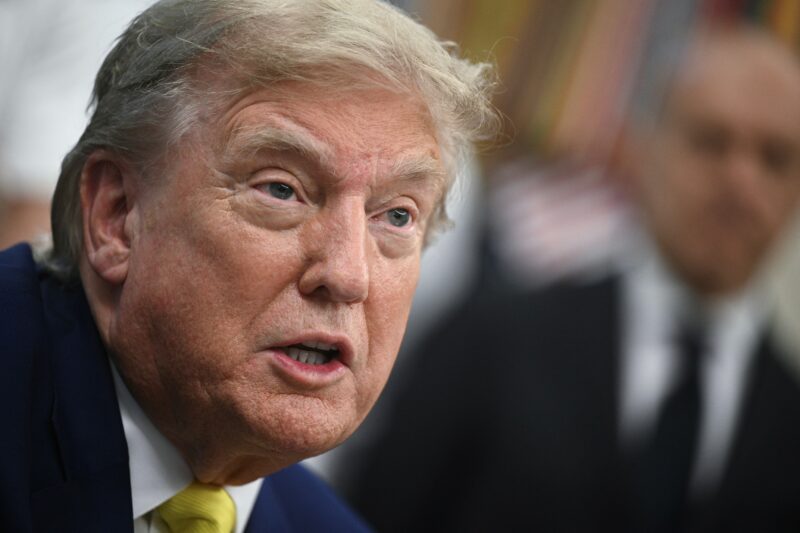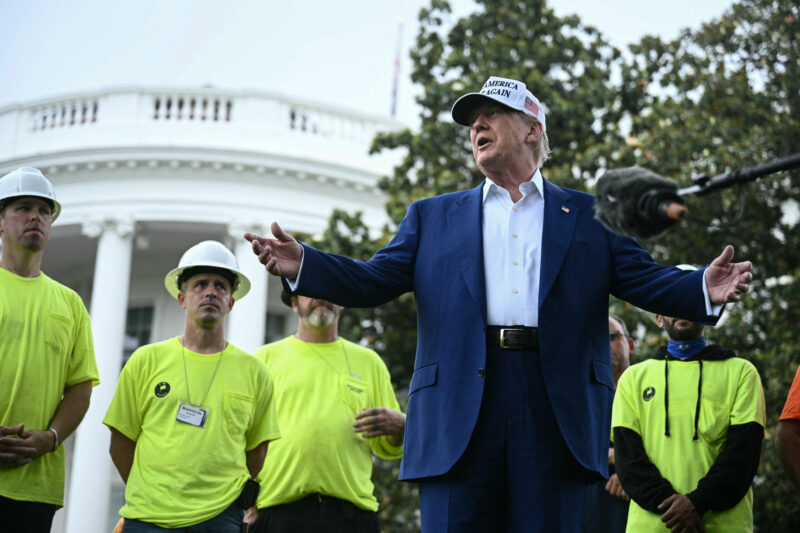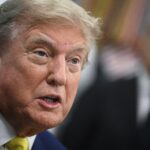New Trump WH memo cites Khalil’s ‘participation in antisemitic protests’ as reason for deportation
The document, signed by Secretary of State Marco Rubio, cites the president’s authority to expel noncitizens even if they haven’t committed a crime

Andrew Lichtenstein/Corbis via Getty Images
Demonstrators hold a rally and march to the national ICE headquarters to protest the arrest of Mahmoud Khalil, April 5, 2025 in Washington, D.C.
New claims in the Trump administration’s monthlong case against anti-Israel Columbia University protest leader Mahmoud Khalil state that the arrest and planned deportation are based on his “participation in antisemitic protests and disruptive activities, which fosters a hostile environment for Jewish students in the United States.” The evidence, which stopped short of identifying any crimes Khalil had committed, was submitted to a federal judge overseeing the case on Thursday.
A memo, signed by Secretary of State Marco Rubio, cited the president’s authority to expel noncitizens whose presence in the country could have adverse foreign policy consequences, regardless of whether they have committed a crime.
“Condoning anti-Semitic conduct and disruptive protests in the United States would severely undermine that significant foreign policy objective,” Rubio wrote in the two-page memo, which was first obtained by the Associated Press.
“My determination … is also based on … citations for unlawful activity during these protests,” Rubio wrote.
Khalil, who grew up in Syria but is of Palestinian descent, first came to the U.S. on a student visa, and later married a U.S. citizen and received a green card.
Immigration authorities arrested Khalil, a former graduate student who led last year’s anti-Israel campus protests against the war in Gaza and subsequent student negotiations with university administration, at his home on March 8.
A judge is expected to rule on Friday whether there is enough evidence to remove Khalil from the U.S.
Attorneys for Khalil argued that the memo proved the Trump administration was “targeting Mahmoud’s free speech rights about Palestine.”
“After a month of hiding the ball since Mahmoud’s late-night unjust arrest in New York and taking him away to a remote detention center in Louisiana, immigration authorities have finally admitted that they have no case whatsoever against him,” the attorneys, Marc Van Der Hout and Johnny Sinodis, said in a statement, adding that there is not a “single shred of proof that Mahmoud’s presence in America poses any threat.”
The Trump administration has put a focus on deporting foreign students accused of supporting Hamas and other terrorist groups, with Khalil’s detention being the first such public case. In the ensuing weeks, the White House has revoked more than 600 student visas — although reasons for many of those cases have not been made public.
The crackdown has touched off a debate among Jewish groups, with several celebrating the action but emphasizing a need for due process and some liberal organizations arguing it is a threat to democracy.








































